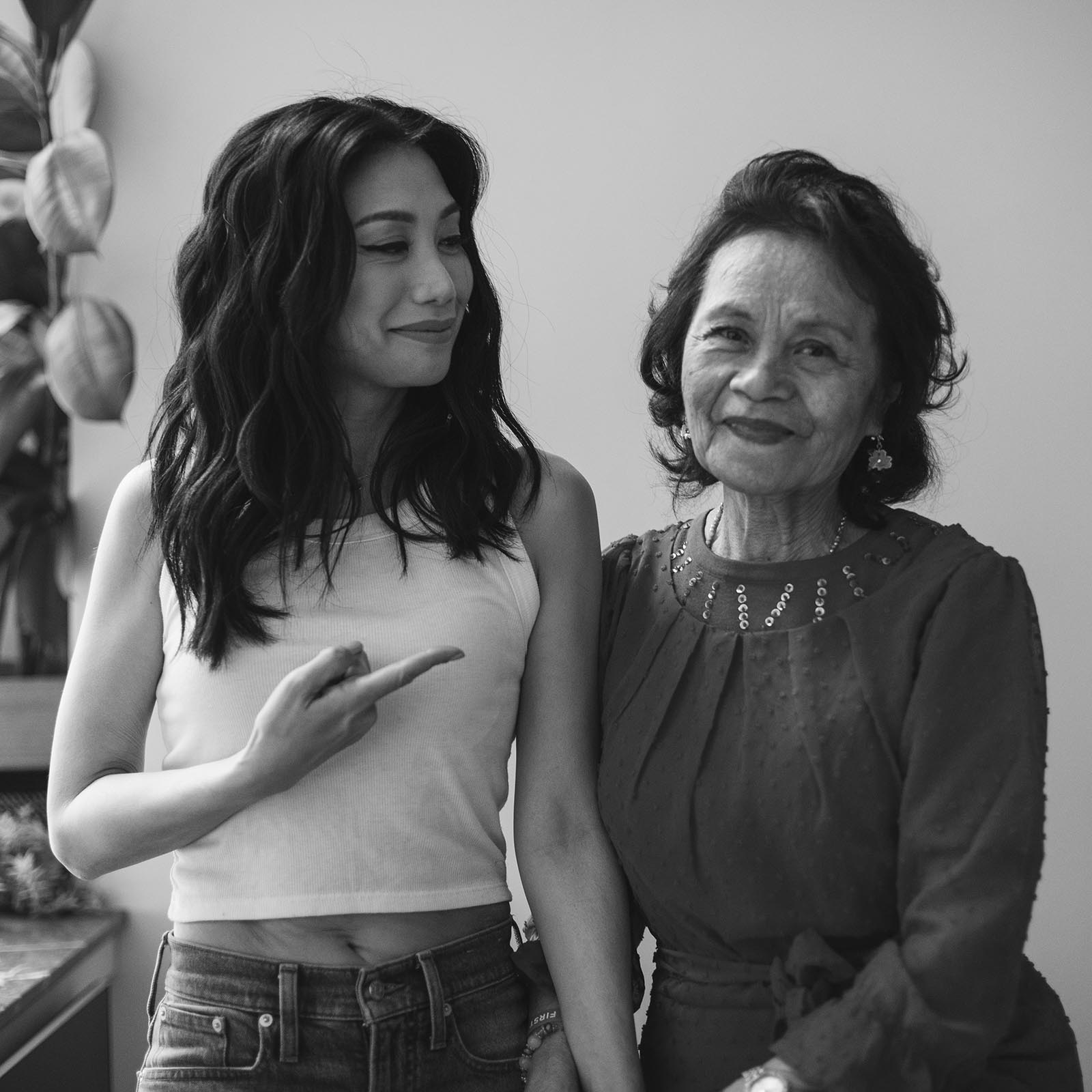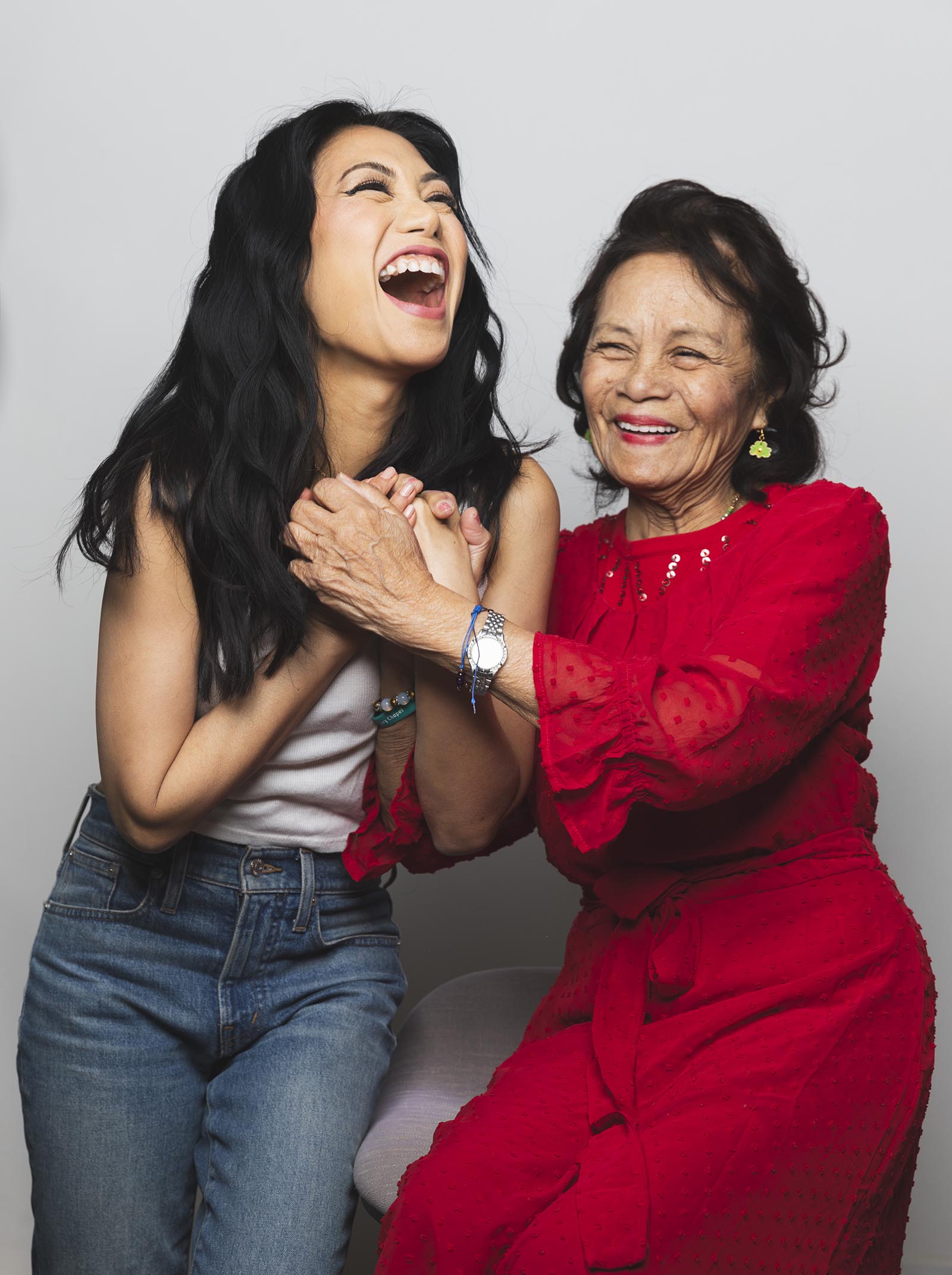Liza Lapira. Photographed by Derrick Leung
As an actress, Liza Lapira continues to highlight Filipino stories.
When you’re in Queens, you’ll hear the sound of the bustling city mixed with the voices of its residents. A patchwork of diverse communities, Liza Lapira grew up in this Borough hearing people speak different languages: Spanish, Haitian, Guyanese, Russian, and Irish, to name a few. In her own home, she heard Tagalog and Spanish from her family. “There’s every culture, color, heritage, and ethnic background. It felt very global,” she says as she recalls her upbringing.
Lapira’s career itself is as diverse as Queens’ borough. “I picked the right career for the way that I was raised,” she says. She’s been on shows such as Law & Order, Sex and the City, Grey’s Anatomy, Dexter, and in the films Fast & Furious, Marmaduke, Crazy, Stupid, Love, Modern Persuasion, and The Fabulous Filipino Brothers.

More recently, she played Disgust in Disney’s Inside Out 2, a character previously voiced by Mindy Kaling. A story centered around a child’s emotions, Inside Out helped Lapira tap into her own. “[It] was a gentle reminder that I can feel the emotions and not have to be talked out of them so fast,” she says. “There’s actually value in going through the emotions; going through the sadness, going through anxiety, and definitely feeling my joy.”
Lapira shares that she taps into her inner teenager to get into the role. One of the mannerisms she does while playing Disgust is to grab her hair to look for split ends, which she picked up from her sister. “We’d do a couple of takes where I was sincerely reacting to something or angry or fearful. And then he’d say, ‘Okay, now do a split-ends take.’ And more often than not, that was the funniest,” she shares.

On set, it was not only the cast and crew who witnessed Lapira riff on jokes with director Kelsey Mann and producer Mark Nielsen. Like a true Filipina daughter, she also brought her mother on set, who was warmly welcomed by everybody. “[In] Filipino culture, one of the many, many gifts is that we respect our elders,” she says. “And when I encounter that in American culture, I think it’s so lovely. And that is definitely how mom was treated in the studio.”
It is just as important for her to see Filipino representation on-screen. In an industry where Asian characters are often given racial stereotypes, Lapira pushes for more diverse narratives for Filipinos.“We just need more narratives because if people have one narrative, it’s not even their fault,” she says. Lapira herself has played the role of a nurse, a common role played by Filipinos both on and off the screen. “And that is a beautiful story that needs to be told, [but] it should not be the only thing told,” she says. She shares the diverse background of her family: her father is an engineer, her sister has a master’s degree in psychology, her other sister is an elementary teacher, and her brothers were in the military.

It is why, when she joined The Equalizer series, she pushed for her character to be a Filipino. “She was not Filipino at first, necessarily. She was just described as Asian and she had a different last name” she shares. It began with one question: can she change her last name to a Filipino one? “I’ve been blessed,” she says, recalling how collaborative the show’s creators and showrunners were. And so, she was no longer playing a generally Asian character. She is now Melody ‘Mel’ Bayani, a former U.S. Air Force Sniper turned bar owner.
She expresses her gratitude to the people that she’s worked with for their willingness to listen to her pitches for Filipino representation: “To be able to have the space to even do that is a blessing. And then to have them actually pick some of them is a gift, and everybody gets to see it on the screen.”

Lapira continues to find new Filipino stories to tell. “There’s a lot to be mined in the Philippines–the culture, traditions, the complicated history,” she says. Currently, she is working with Filipino author Melissa de la Cruz to create a Christmas film script, with the story following a conflicted artist in New York who visits the Philippines to rejuvenate her creativity. “It’s where she meets someone truly different from her, and they fall in love,” she shares.
In an industry where actors and actresses often don’t have much creative control, Lapira’s courage to speak up is admirable. For her, telling Filipino stories is less of a “have to,” but rather a “get to.” “It’s good for society as a whole to tell those stories because it just makes life richer to know about other people,” she says. “To know the sweetness of our similarities as well as ‘different’ as we are, there’s this singular human experience that is beautiful.”
Photographed by Derrick Leung. Hair: Sky Kim. Makeup: Jocelyn Biga. Styling: Andrew Gelwicks.
